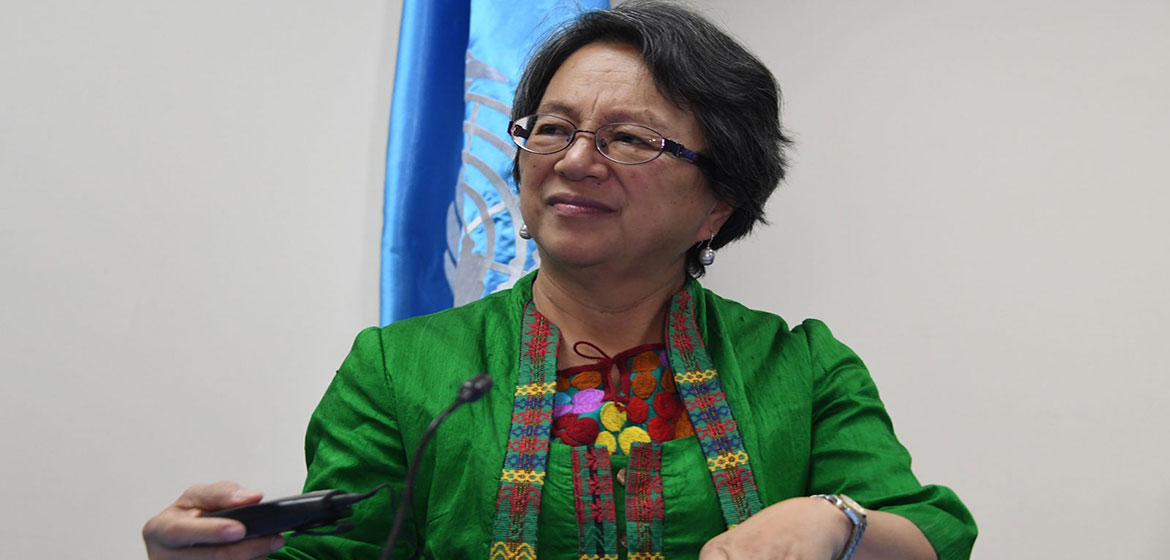Report of the Special Rapporteur on the rights of indigenous peoples
IX. Conclusions and recommendations A. Conclusions
89. States carry the primary responsibility for ensuring that indigenous peoples are able to safely exercise their rights and that accountability is established for violations against indigenous defenders. Concerted action is urgently needed to halt the trend of attacks, criminalization and impunity for those who commit violations against indigenous peoples.
90. Large-scale development projects are major drivers fuelling the escalation of attacks and the criminalization of indigenous peoples. The frequent undertaking of such projects without genuine consultation or measures to seek the free, prior and informed consent of the indigenous peoples concerned must cease. Indigenous peoples are not against development, but they reject “development” models which have been imposed on them without their participation and undermine their rights to self- determination and their right to set their own priorities for the development of their lands, territories and resources.
B. Recommendations
91. The Special Rapporteur addresses the following recommendations to States:
(a) All violent attacks against indigenous defenders must be promptly and impartially investigated and measures taken to provide for effective redress and reparation;
(b) A zero-tolerance approach to the killing of and violence against indigenous human rights defenders must be adopted at the highest level of Government. All public officials must refrain from stigmatizing indigenous communities affected by large-scale development projects and those defending their rights, and recognize that their concerns are legitimate components in a process aimed at securing sustainable development;
(c) States should ensure that legislation creates due diligence obligations for companies registered in their jurisdictions and those of their subsidiaries where there is a risk of human rights violations against indigenous peoples;
(d) Addressing criminalization requires a comprehensive review of national laws, the adoption of laws to ensure due process and the revocation of laws and criminal procedures that violate the principle of legality and contradict international obligations. Legislation that criminalizes indigenous livelihoods such as rotational agriculture, hunting and gathering should be repealed;
(e) Legislation and policies should be adopted to expressly support the protection of indigenous defenders and communities. Protection measures should ensure that both individual and collective protection aspects are addressed in practice, in close consultation with the indigenous peoples concerned. Indigenous-led protection initiatives should inform the design of all measures that are adopted by authorities in favour of indigenous communities at risk;
(f) In order to address the root causes of attacks and criminalization, collective land rights of indigenous peoples need to be recognized. This requires, inter alia, accessible, prompt and effective procedures to adjudicate land titles; the review of laws on expropriation; adequate mechanisms to resolve land disputes; effective protection from encroachment, including through early warning systems and on-site monitoring systems; and the prohibition of forced evictions;
(g) Law enforcement officials and prosecutors should be trained on human rights standards and refrain from the criminalization of indigenous peoples who are peacefully defending their rights to lands and resources;
(h) In order to implement the right to consultation and to free, prior and informed consent, such processes need to be based on good faith. It is indispensable that indigenous peoples be afforded genuine participation and access to information in a culturally appropriate manner in a language they understand. This requires their involvement at all phases, including human rights impact assessments, project planning, implementation and monitoring.
92. The Special Rapporteur recommends that independent national human rights institutions closely monitor complaints relating to large-scale development projects through regular dialogue with and visits to affected indigenous communities at risk of attacks.
93. The Special Rapporteur recommends that private companies:
(a) Exert human rights due diligence in all operations and adopt clear policy
commitments to that effect;
(b) Perform ongoing human rights impact assessments for all projects, with the full participation of potentially affected indigenous communities;
(c) Avoid any acts of defamation which stigmatize indigenous peoples.
94. The Special Rapporteur recommends that international financial institutions and donors, as well as State agencies that provide international assistance, should adopt and implement environmental and social safeguards that are consistent with human rights obligations, including by:
-
(a) Requiring human rights impact assessments of all projects;
-
(b) Including specific protections for indigenous peoples;
-
(c) Requiring the effective participation of affected indigenous communities;
(d) Providing for effective procedures to pursue remedies.
95. The Special Rapporteur recommends that the international community monitor whether human rights impact assessments are conducted and whether specific attention is given to the participation and protection needs of indigenous communities. Accountability mechanisms should be supported.
96. The Special Rapporteur recommends that civil society continue to provide support and legal advice and facilitate the sharing of experiences in relation to protection measures for indigenous people.
Download the full report here >
Related to SDG 10: Reduced inequalities and SDG 16: Peace, justice and strong institutions



